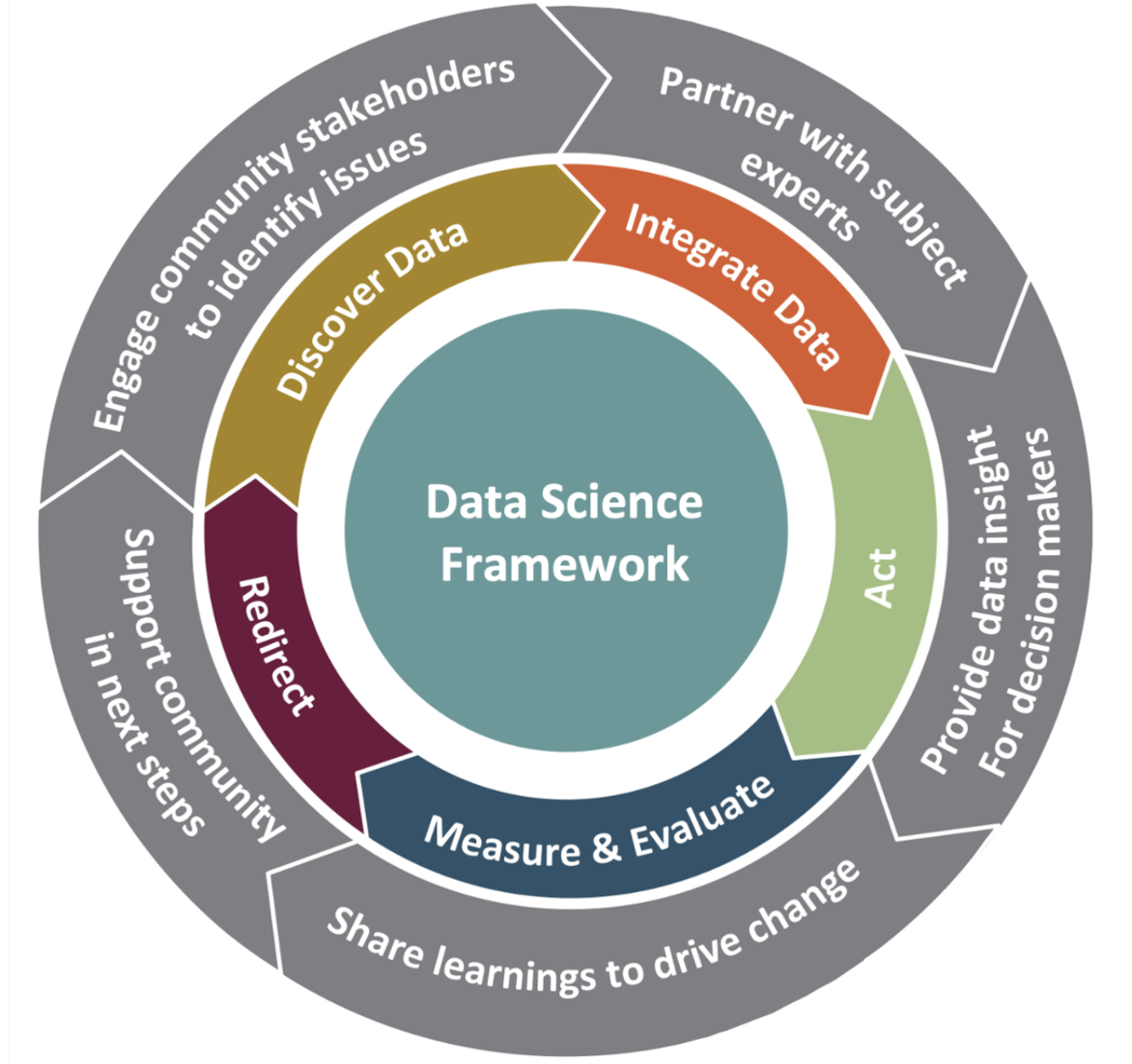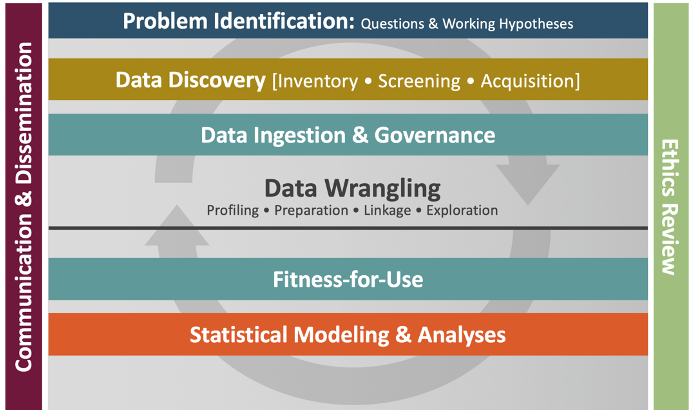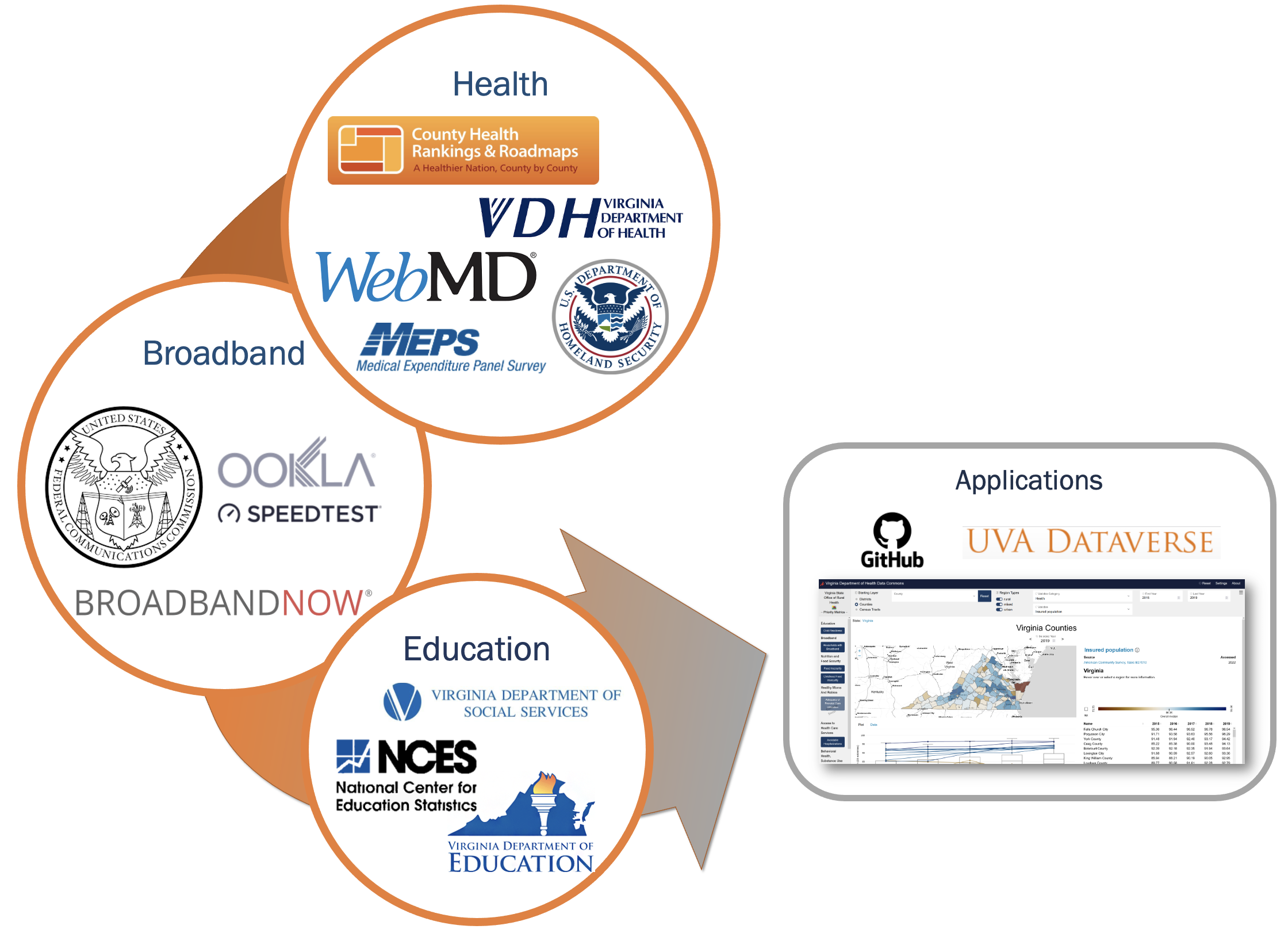Community Learning Through Data Driven Discovery
Our Guiding Process

Community Learning Through Data Driven Discovery (CLD3) Process developed by the Social and Decision Analytics Division
What is the CLD3 framework?
Our vision is to bring the data revolution to communities across our states through a process called Community Learning through Data Driven Discovery (CLD3). The key innovation in CLD3 is, as its name suggests, community-based research where the community participates in asking and answering the questions that drive information gathering and provide insights relevant to program or policy decisions. The CLD3 process liberates, integrates, and makes data available to local stakeholders including government, Cooperative Extension professionals, researchers, and citizens enabling them to bring local data insights to some of their most pressing challenges.
Unpacking the CLD3 process
The CLD3 process goes beyond the traditional organizing aspects of collective action programs and helps communities build capacity for data-informed decision making.
- Outer wheel: continuous interaction and communication across stakeholders
- Middle wheel: data-driven learning process
- Frontier between the outer and middle wheels: active collaboration between all partners
- Inner circle: rigorous research framework to guide the data science
Data Science Framework

Data Science Framework developed by the Social and Decision Analytics Division
Our Data Science Framework provides a comprehensive, rigorous, and disciplined approach to problem solving that is at the heart of the Community Learning through Data Driven Discovery (CLD3) process. This includes identifying data sources, preparing them for use, and then assessing the value of these sources for the intended use(s).
Although the Data Science Framework is described in a linear fashion, it is far from a linear process as represented by the circular arrows underlying the diagram.
Our initial local issues included
- equity of access to broadband communications
- equity and stability of access to staple foods
- transforming racial equity data into meaningful geographies
Data collection
After grounding in local issues, we collected data from a variety of sources to create novel measures and datasets. These datasets feed into our applications, including our API and dashboard.

Examples of data sources collected and combined for the health, broadband, and education repositories, which feed into our applications.
References
Doing Data Science: A Framework and Case Study Article
Harvard Data Science Review, 2(1). (2020) S.A. Keller, S.S. Shipp, A. D., Schroeder, & G. Korkmaz
Helping Communities Use Data to Make Better Decisions Article
Issues in Science and Technology, Spring:83-89. (2018) S. Keller, S. Nusser, S. Shipp, C. Woteki
Harnessing the power of data to support community‐based research ABS
WIREs Comp Stat doi: 10.1002/wics.1426. (2018) S. Keller, S. Shipp, G. Korkmaz, E. Molfino, J. Goldstein, V. Lancaster, B. Pires, D. Higdon, D. Chen, A. Schroeder
Building Capacity for Data Driven Governance - Creating a New Foundation for Democracy Article
Statistics and Public Policy, 4:1-11. (2017) S. A. Keller, V. Lancaster, S. Shipp
Sponsored by  |
| Project Contact: Aaron Schroeder, ads7fg@virginia.edu |